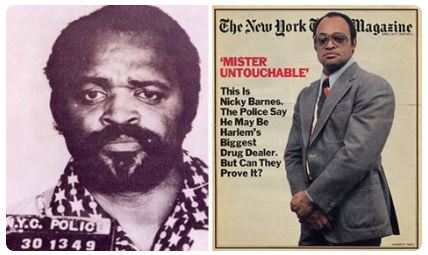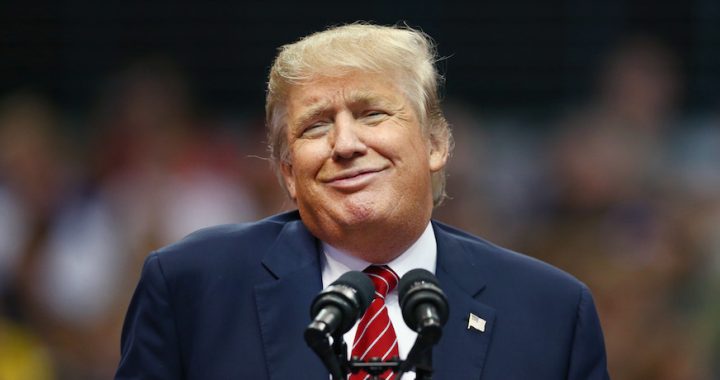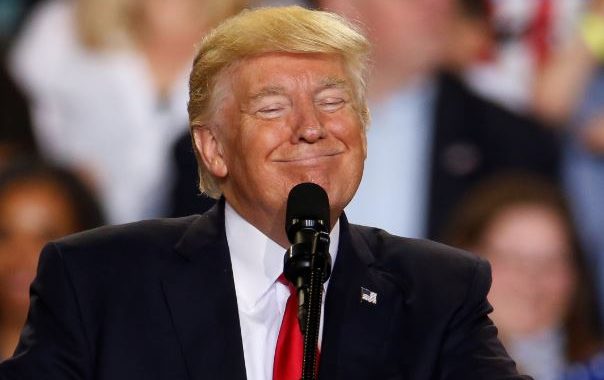
New York drug lord Nicky Barnes Dies In Witness Protection at 78
Nicky Barnes, an ostentatious New York City drug lord who was played by Cuba Gooding Jr in the Ridley Scott film American Gangster, is dead.
Related: Frank Lucas, the drug lord who inspired American Gangster, dies aged 88
According to the New York Times, Barnes died aged 78 – or possibly 79 – in 2012. The news was not known until now, the newspaper said, because Barnes had entered the federal witness protection program. The Guardian could not independently confirm the report.

The report of Barnes’ death came a week after the death at 88 of Frank Lucas, a rival Harlem heroin kingpin of the same era who was was the lead character in the 2007 film, played by Denzel Washington. American Gangster also starred Russell Crowe as a cop.
Put on trial in 1977, Barnes was convicted and sent to prison for life without parole. As it turned out, he spent more than 20 years behind bars. While in jail, the Times said, Barnes became so incensed that his former associates were ruining his drug empire that he decided to testify against them. Following his release in 1998, federal authorities put him in witness protection, under a new name.
Around the release of American Gangster, Barnes participated in a biography and documentary and gave the Times an interview. He said he resented Scott’s film for the way it focused on Lucas rather than him. But he also said he had abandoned his old, flashy ways.
“Nicky Barnes is not around anymore,” he said. “Nicky Barnes’s lifestyle and his value system is extinct … I left Nicky Barnes behind.”
In Barnes’ heyday, the Times said, he owned “as many as 200 suits, 100 pairs of custom-made shoes, 50 full-length leather coats, a fleet of luxury cars and multiple homes and apartments”.
The drug trade that made him him a millionaire had a drastic effect on African American neighborhoods but Barnes managed to cast himself as a sort of Robin Hood in Harlem, through stunts such as passing out holiday turkeys, something Washington’s Lucas is shown doing in the movie.
Prior to his conviction, a sharply besuited Barnes even appeared on the cover of the New York Times Magazine under the headline “Mr Untouchable” and with the caption: “The Police Say He May Be Harlem’s Biggest Drug Dealer. But Can They Prove It?”
The story offended then US president Jimmy Carter so much, the Times said, that he ordered Barnes prosecuted “to the fullest extent of the law”.
After Barnes’ release, he seemed to crave normality. “The anonymity that cloaks Middle America,” he told the Times in 2007, “is the life I’m comfortable with, and what I want to be.”
Under his new identity, in an undisclosed location, Barnes reportedly ran automatic carwashes. The sketchiest thing he seemed to peddle was “something called a flake-burger, made from remnants of butchered beef”.
“I want to get up every day and get in the car and go to work and be a respected member of my community,” Barnes said. “And I am respected.
“I’m not looking in the rear-view mirror to see if anyone is tailing me any more. I don’t turn on the blender when I’m at home so I can talk. That is not a part of my life. Sure, I’d love to have more money, but I am not willing to do anything but go to my job to get it.”
Barnes sank back into anonymity. After more than a decade and spurred by the death of Lucas, the Times came looking again. It confirmed this week that he died of cancer in 2012.
Barnes sank back into anonymity. After more than a decade and spurred by the death of Lucas, the Times came looking again. It confirmed this week that he died of cancer in 2012.
Informed of Barnes’ death, Robert Fiske Jr, who was Manhattan US attorney in 1977, told the Times Barnes had run “the largest, the most profitable and the most venal drug ring in New York”.

At his trial, Barnes denied killing anyone himself, saying he only gave orders. The authorities argued otherwise.
One of Barnes’ daughters told the Times in an email the family had decided not to publicize his death, writing: “It still remains a sensitive topic given all that occurred. Our dad was very private and we wanted to respect that.”
The daughter also said that she and her sister might write a memoir “about growing up as the daughters of a notorious criminal”.







